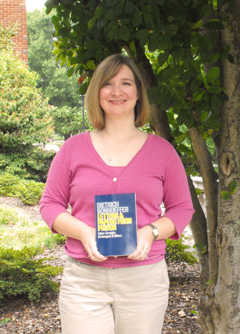Dr. Susan W. Johnson
Associate Professor, Political Science

Letters and Papers from Prison
by Dietrich Bonhoeffer
One of the most memorable books I read as an undergraduate was Dietrich Bonhoeffer's Letters and Papers from Prison. The book combines my love of political science, history, and religion. Bonhoeffer was a German pastor and theologian best known for his role in the conspiracy in the failed assassination attempt of Adolf Hitler. "Silence in the face of evil is itself evil...not to speak is to speak, not to act is to act." This is the tenet by which Bonhoeffer lived and, ultimately, died. In Letters and Papers from Prison, we see him evolve as he awaits his trial and hopeful release. Then, the letters become much more reflective, taking on a different tone as he hopes for the success of the July 1944 assassination attempt, and then, after the failure of the attempt, as he awaits his fate. Bonhoeffer was hanged at Flossenburg concentration camp in April 1945 on Hitler's order. This book is one of my favorites because it places Bonhoeffer's thinking in the context of the war that surrounded him and the family and friends he corresponded with. Bonhoeffer's humanity, his transparency through his poetry, and his deep thinking in his theological letters get to the heart of life's meaning and leave a great legacy for others who search for the 'why' questions of life.